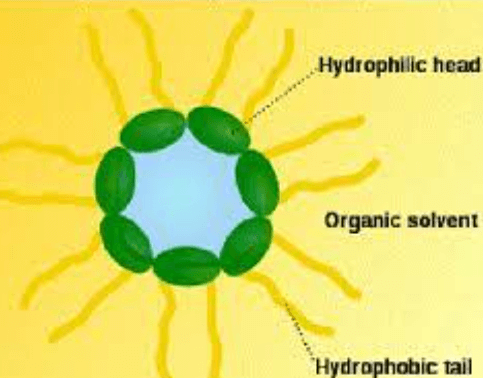Brief Guide to Sodium Laurate A Versatile Surfactant and Emulsifier

Sodium laurate is a versatile substance, that can be widely used in different industry sectors. Due to good detergent and foaming properties, it is often used as a surfactant and an emulsifier. Sodium laurate is a surfactant-type compound, which is discussed in this paper. For further info on our products as a sodium laureate and 2,4-dichloro-5-fluoropyrimidine supplier,, visit our website today.
What Is Sodium Laurate?
Sodium laurate, another term for sodium dodecane, is a white or cream-colored solid having the chemical formula C 12H 24NaO2. This compound is a sodium salt of lauric acid, a common fatty acid in coconut or palm kernel oil. Lauric acid is an active ingredient that can be found in various skincare as well as personal cosmetic products. NaOH-lauric acid, sodium laurate.
Characteristics of Sodium Laurate:
As Sodium laurate Manufacturer, we exhibit the following key characteristics that make it a valuable compound in various applications:
- Surfactant Properties: Sodium laurate is a good surfactant, as it reduces the surface tension of liquids and increases the ability of water to spread and reach other substances.
- Emulsification: It serves as an emulsifier, helping to mix oil and water to form stable emulsions. It is vital in the cosmetic, food, and pharmaceutical industries.
- Foaming Agent: Rich in producing stable foams, sodium laurate is commonly used in shampoos, soaps, and other personal care products.
- Mildness: Generally, it is classified as mild and non-irritating, making it ideal for skincare and cosmetic products.
- Biodegradability: It is important to note that sodium laurate is biodegradable as it decomposes naturally within the surroundings, thus lessening the effect on ecosystems.
Applications of Sodium Laurate:
Sodium laurate is utilized in a wide range of applications across various industries:
- Personal Care Products:
Sodium laurate is a common ingredient in personal care products, including:
Shampoos and Conditioners: The material functions as a foaming agent and emulsifier – helping ingredients distribute evenly.
- Soaps and Cleansers: They create a creamy lather that improves the cleansing effect.
- Skin Creams and Lotions: Their role is that of an emulsifying agent which prevents an uneven mixture of water–based components with the oil constituents in the cosmetic preparations.
- Toothpaste: It is present in toothpaste for its foam forming and emulsification.
- Pharmaceuticals:
Sodium laurate is an excipient used in the pharmaceutical industry to facilitate the formulation and administration of drugs. It is employed in coating tablets as an adhesive and emulsion stabilizer for liquid formulations and suppositories.
- Food Industry:
It is also a synergistic component in various foodstuffs, emulsifying and stabilizing agents for processed food in the food industry. This is used in producing sauces, dressing, and dairy products.
- Industrial and Household Cleaners:
Sodium laurate has surfactant properties; thus, it is utilized in making industrial and domestic cleaning products, including detergents, degreasers, and surface cleaners. It is effective in removing unwanted debris and grime.
- Specialty Chemicals:
In specialty chemicals such as emulsifying agents for oil-based drilling fluids used in the petroleum industry, sodium laurate can be found, among others.
Benefits of Sodium Laurate:
The use of sodium laurate offers several benefits:
- Effective Cleaning: Laurite improves in personal care and cleaning products. This results in reduced surface tension, which enables cleaning with less water to dislodge dirt and grime effectively.
- Emulsion Stability: The stability of emulsions in different compositions. Stop separating the oil and water-based components.
- Foaming Action: The foaming properties of sodium laurate play a role in enhancing sensory satisfaction. Personal care such as shampoo and body wash experience.
- Mildness: Thus, it is mild and well tolerated for sensitive skin types.
- Biodegradability: It is broken down by nature in the environment reducing its ecological impact.
Safety Considerations:
GRAS – Sodium Laureth Sulfate Usage regulatory guidelines. But just like all other chemical substances, its handling and use should be carefully considered, adopting appropriate safety measures and best practices in the industry with its use.
Uses of Sodium Laurate in the Personal Care Industry:
The use of Sodium laurate is widespread in personal care.
industry. These characteristics make it an essential component of cleansing products.
This helps clean, tone, moisturize, and protect the skin and hair.
- Cleansing Products:
It is essential because sodium laurate has the best surfactant properties for cleaning.
facial cleanse, body wash, and hand soap products. When combined with water, it
It forms a luxuriant foam that sweeps off dust, grease, and all other impurities from the skin’s epidermis. After cleansing, it refreshes the skin.
- Shampoos and Conditioners:
Sodium laurate is used in the production of shampoo and conditioner for bubbles.
a clean-up that is commonly associated with action. It aids in distributing the
it is meant to spread the active ingredients evenly throughout your hair to give the solution a real effect.
- Bar Soaps:
Sodium laurate is one of the ingredients in traditional bar soaps. The compound’s
This is preferred for commercial and artisan purposes because of its capability to support stable foam soap makers. This paper will show why sodium laurate is an essential component of bar soaps that work to clean skin’s natural moisture balance.
- Creams and Lotions:
However, sodium laurate is not limited to cleansing products.
substances of water nature in cream and lotion. Good product flow guarantees an easy production process. Homogeneous in texture, thus facilitating proper distribution of its active components for efficiency. Additionally, sodium laurate serves as a stabilizer of emulsions, inhibiting their disintegration.
Environmental Considerations:
Even though sodium laurate is highly practical and helpful, environmental sustainability must be considered. Accordingly, sodium laurate is biodegradable. It naturally disintegrates and disappears from the environment. This biodegradability is less eco-friendly than certain synthetic ones.
In addition, continued research is being carried out due to rising environmental consciousness.
towards developing environmentally friendly substitutes in replacing chemical compositions such as sodium laurate. Consumer demand for eco-friendly products is pushing manufacturers’ hand.
Effective and Eco-Friendly Products:
Thus, sodium laurate is highly useful and has multi-functional applications across industries. This makes it a suitable surfactant, emulsifier, and foamer, integral to personal care products, drug products, food, and cleaning agents. With its mildness, biodegradability, and effectiveness, sodium laurate plays a significant role in enhancing the performance of various products while maintaining environmental responsibility.




